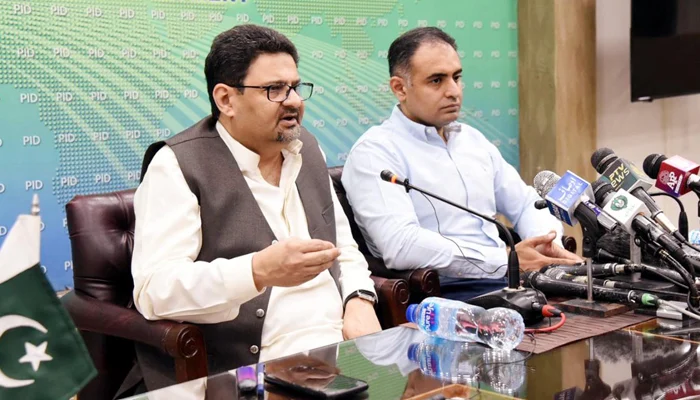ISLAMABAD, July 31(ABC): Finance minister Miftah Ismail on Sunday said that the Pakistani rupee, which has taken a beating against the US dollar in recent weeks, should see some improvement “in the two weeks”.
Ismail was addressing a press conference to speak about Pakistan’s economic path forward.
“I really think — although I never like to speculate on the currency market — but I really think that the rupee’s true value is far greater [than what it is right now],” the finance minister said.
He explained that in the past two months, Pakistan had to part with “a billion and another billion”, which put pressure on the local currency.
Ismail said that Pakistan bought petroleum products worth Rs3.8 million for which payment was made in July, which is why there was a lot of pressure on the rupee.
“This month, the State Bank had to pay $800 million more compared to the country’s inflows,” he added.
Ismail said that efforts will be geared towards more dollars coming in daily and fewer leaving the country next month. “With our efforts to reduce imports and InshaAllah, with the daily rise in incoming dollars versus a decline in outgoing units, there will be a surplus [of dollars],” he said.
“This will lead to a reduced pressure [on the rupee] and the dollar’s value against the rupee should then see a slight drop,” the minister added.
Ismail said that he has hope that the “next two weeks will InshaAllah be better”.
He cautioned, though, that although this is his view since he believes “the fundamentals are in Pakistan’s favour”, but “speculation and sentiments also play a role in this”.
Import ban
The finance minister said that the Economic Coordination Committee (ECC) has recommended removing the ban on imports. If approved by the cabinet and signed off on by the prime minister, several items will no longer be banned. A ban will continue to remain, however, on imported cars, mobile phones and home appliances.
‘Current account to go into surplus in a year’
Ismail said that the government aims to convert the current account deficit into surplus. “In the short term, we reduced imports and now over the next two to three months, we will increase exports,” he said.
‘Priority only to save Pakistan from default’
The finance minister, to a question on what the government plans to do to arrest the rising inflation, Ismail said: “It is the prime objective of every finance minister to curb inflation and focus on growth. My number one priority has never been to control inflation or to bring growth. My priority has only been to save Pakistan from default.”
To describe just how grave a situation the country could have fallen into before being “saved”, he spoke of Sri Lanka, which recently declared bankruptcy.
The minister said: “Of late, petrol in the country cost 90 rupees and was sold at 3,000 rupees in the black market, hospitals shut down due to medicines running out, women would stand in line for three days to get gas to power their stoves, and one had to queue up for 10 days to get petrol.”
‘PTI brought country to brink of default’
In criticism of the past rulers, Ismail said that the PTI-led government increased the country’s debt by Rs20,000 billion or 79% in the last three years and nine months.
He said that the incumbent government did “nothing that would take the country to the brink of a default”. “What brought the country to this point was PTI; it was Imran Khan,” he said.
The finance minister said that when the PML-N government left power, the country’s debt stood at $24,952.9. “When we came back now, it had risen to around $45,000.”
Faulting the PTI government for the existing current account deficit of the country, he said that “the policies of Shaukat Tareen and Imran Khan have a big hand” in it. He added that the previous government was behind the country’s “four biggest budget deficits”.
“There wasn’t one year that they could match the PML-N’s tax-to-GDP ratio,” he added.
“When every single year you reduce tax collections and increase the budget deficit, then of course debt will mount,” Ismail said, adding that this year, Pakistan will have to pay $4,000bn in interest payments alone.
The finance minister acknowledged that a “very difficult” budget was passed, attributing it to the above-mentioned factors.

